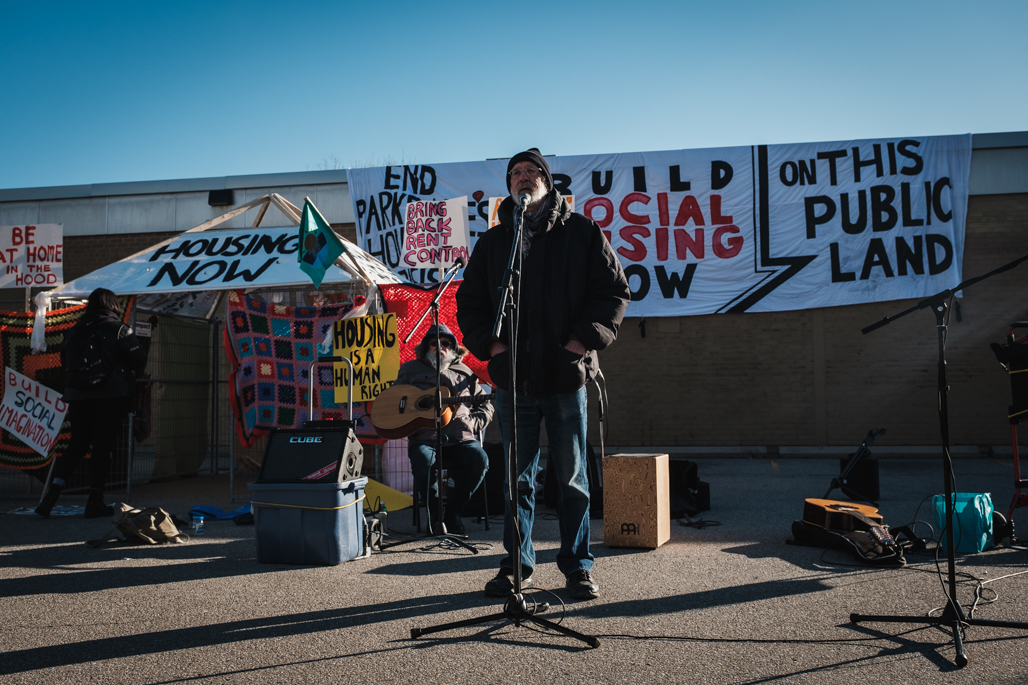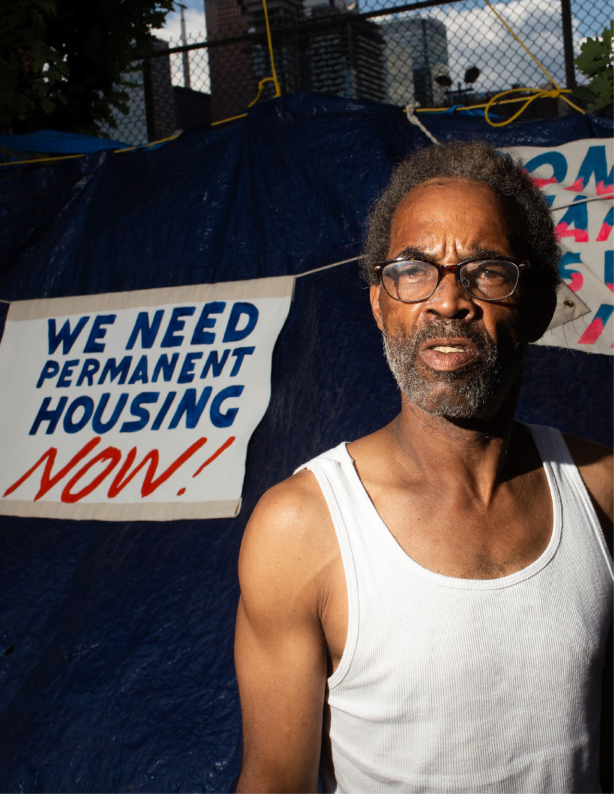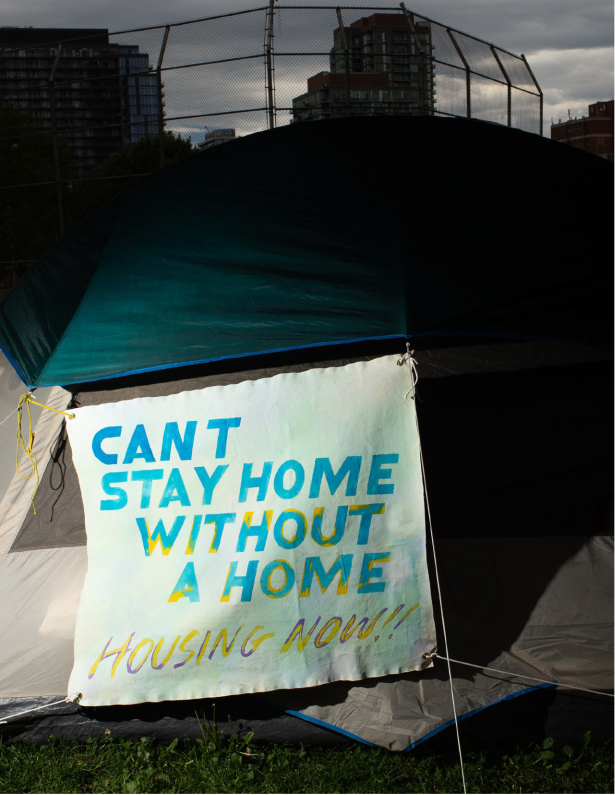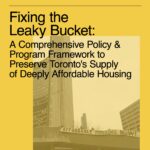Abstract
Toronto is losing affordable dwelling rooms and other forms of deeply affordable rental housing far faster than it is being created and the impact on Torontonians is significant: the city is experiencing record rates of homelessness – the last official census of the homeless population in 2018 counted 8,715 people (City of Toronto 2018b); all of its homeless shelters and 24-hour respite spaces are at or over capacity; and at the beginning of 2019,102,049 households were on the centralized wait list for subsidized housing (City of Toronto 2020a). The COVID-19 pandemic has exacerbated the crisis.
It is clear that Toronto does not have the necessary policies and measures in place to ensure the adequate provision of affordable housing and the adequate provision of a full range of housing, which is a stated priority of the City of Toronto and Ontario’s Planning Act.1
To prevent the city’s homelessness crisis from becoming far worse, it is critically important that the City of Toronto take immediate action to: 1) preserve the existence and affordability of dwelling rooms and other deeply affordable housing, and 2) protect tenants from predatory landlord behaviour and displacement.

Parkdale National Housing Day
Key Components of A Comprehensive Policy Framework to Preserve Toronto’s Supply of Deeply Affordable Housing:
- Legalize multi-tenant housing across the city through as-of-right zoning and improve its quality without causing tenants to lose their housing.
- Require and better enforce the replacement of affordable housing that would otherwise be lost to demolition or conversion.
- Prevent predatory eviction through the creation of a proactive, inter-sectoral, coordinated, integrated and data-driven tenant support system.
- Establish a small sites rental housing acquisition program that provides capital grants or forgivable loans to non-profit housing organizations or community land trusts to facilitate the purchase and conversion of at-risk private market affordable rental housing into permanently affordable housing.
- Facilitate the development of more permanently affordable housing.
Advocate for the reform of provincial policies and practices that contribute to the real estate speculation driving dwelling room loss and increasing housing unaffordability. - Advocate for the reform of provincial policies and practices that contribute to the real estate speculation driving dwelling room loss and increasing housing unaffordability.
As real estate values across the city have climbed, the loss of rooming houses due to development has quickly escalated. People across the city are being forced from their homes and into homelessness to make way for housing for more affluent people.

Derrick Black at an encampment in downtown Toronto, October 2020, Jeff Bierk.
Last year, the Parkdale Neighbourhood Land Trust conducted research on rooming houses in Parkdale. The Parkdale Rooming House Study confirmed an alarming trend that many of us are well aware of: the ongoing loss of rooming houses, with 28 rooming houses in Parkdale shut down over the past 10 years, resulting in 350 vulnerable people being evicted from their homes. The study found that there are 198 rooming houses left in Parkdale that offer affordable options for over 2,700 low-income tenants. These tenants are predominantly persons with disabilities, unattached individuals aged 45 to 64, and/or newcomers. However, the study determined that 59 of those rooming houses could soon be lost due to development, making over 800 rooming house tenants in Parkdale at high risk of becoming homeless.
And that’s just in one Toronto neighbourhood.

Photo: Jeff Bierk
Main Funders
Ontario Trillium Foundation
Maytree
